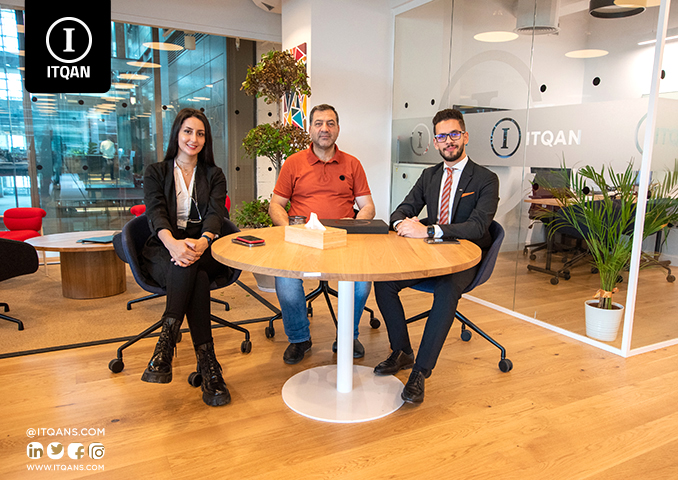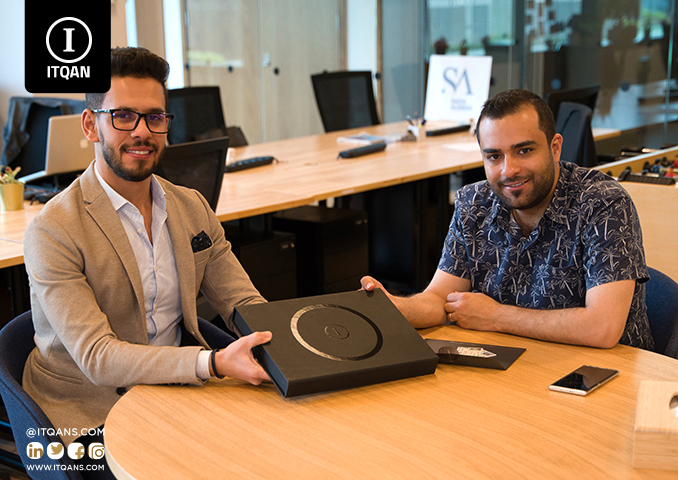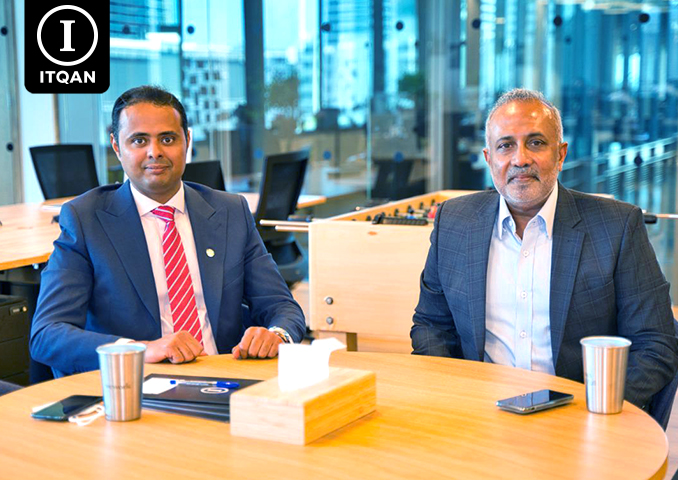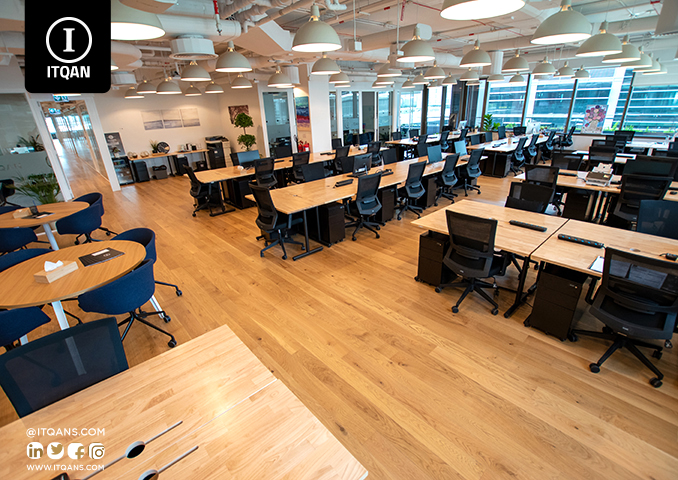Advantages of establishing a company in the Ras Al Khaimah Free Zone, the Ras Al Khaimah Free Zone is considered one of the most prominent investment destinations in the Emirates, as it provides an ideal environment for businesses and investors wishing to establish new companies. This zone has many advantages that make it an attractive option for investors from all over the world. First, the free zone allows investors to fully own their companies without the need for a local partner, which gives them complete control over their business and enhances their chances of success. Second, the free zone provides distinctive tax exemptions, as no taxes are imposed on companies for a renewable period of 50 years, which helps increase profit returns and reduce operating costs. In addition, the free zone facilitates the establishment and registration procedures, which speeds up the start of business activity, as investors can complete all administrative procedures quickly and efficiently.
The Ras Al Khaimah Free Zone is also distinguished by its strategic location, as it is connected to a wide network of roads, ports and airports, which facilitates the movement of trade and transportation. The presence of advanced infrastructure and high-quality logistics services contributes to supporting companies’ activities and enhancing their operational efficiency. Moreover, the free zone provides a variety of options in terms of office spaces and warehouses, allowing investors to choose what suits their needs and requirements. The region also works to attract foreign investments by providing additional incentives such as facilitations in work and residence visas, making setting up a company in the Ras Al Khaimah Free Zone an ideal choice for investors seeking success and growth in a dynamic and innovative business environment.

Advantages of establishing a company in the free zone in Ras Al Khaimah
Table of Contents
ToggleTax benefits of setting up a company in a free zone
Free zones in the UAE are one of the most attractive options for both foreign and local investors, thanks to the unique investment benefits they offer. These zones provide a supportive business environment and various facilities aimed at boosting economic growth. Among the most prominent of these benefits are tax exemptions, which play a vital role in attracting investors. Establishing a company in a free zone provides companies with significant tax benefits, making it easier for entrepreneurs to achieve their business goals and grow their businesses efficiently. Therefore, understanding the tax benefits of establishing a company in a free zone is an essential step for any investor seeking to succeed in the dynamic business environment in the UAE.
Tax advantages:
Companies established in free zones enjoy a number of tax advantages that contribute to improving profitability and reducing costs, including:
- Exemption from corporate tax: Companies in the free zones enjoy a complete exemption from corporate tax for up to 50 years, which means that companies will not pay taxes on their profits, which enhances the opportunities for expansion and profitability.
- Exemption from personal income taxes: There are no taxes imposed on individual income, making it an attractive destination for investors and workers who want to increase their income.
- No customs duties on imports and exports: Investors in free zones enjoy complete exemption from customs duties when importing or exporting goods, which reduces business transaction costs and enhances competitiveness.
- Freedom of remittance: Allows investors to remit profits and returns to their countries without restrictions, facilitating the reinvestment process and enhancing capital flow.
- Facilitation of financial reporting: Free zones require less complex financial reporting, saving time and effort for investors.
- Various corporate options: Investors can establish different types of companies (such as limited liability companies, sole proprietorships) according to their needs, while retaining tax benefits.
The tax benefits of setting up a company in a free zone are a major attraction for investors, as they contribute to enhancing profitability and reducing financial burdens. Therefore, choosing to set up a company in a free zone is a smart strategic move for any investor seeking success and growth in a competitive business environment.
Procedures required to establish a company in the free zone
Establishing a company in a free zone is a strategic step for many businessmen and investors, as these areas provide an ideal environment for growth and prosperity thanks to the unique advantages they offer such as tax exemptions, freedom of trade, and simplified procedures. Establishing a company in a free zone requires following a set of basic steps and procedures, which aim to ensure that work is organized and legal compliance is achieved. The procedures vary slightly depending on the specific free zone, but there are general steps that can be followed to facilitate the establishment process. In this article, we will review the procedures required to establish a company in a free zone, making it easier for investors to understand the requirements and help them take thoughtful steps towards starting their businesses. Procedures required to establish a company in a free zone
- Choosing the type of company: The investor must determine the type of company he wants to establish, whether it is a limited liability company, a sole proprietorship, or a branch of an existing company.
- Choosing a company name: The investor must choose an appropriate name for the company and ensure that it complies with the naming requirements set by the competent authority in the free zone.
- Submitting the application: After determining the name, the establishment application must be submitted to the relevant authority in the free zone, and this includes filling out the required forms and attaching the necessary documents.
- Obtaining approvals: After submitting the application and documents, the relevant authority must review the application and issue the necessary approvals to establish the company.
- Signing contracts: After obtaining approvals, the necessary contracts must be signed, such as the articles of association and the company’s bylaws.
- Opening a bank account: The company must open a bank account in its name and deposit the required capital.
- Obtaining a commercial license: After completing all the previous procedures, a commercial license is issued that allows the company to start practicing its activities.
- Registration with the competent authorities: In some cases, the company may need to register with other government agencies or obtain additional licenses depending on its activity.
Following these necessary procedures to establish a company in the free zone helps facilitate the process of starting a business and contributes to achieving success and sustainability. It is important for investors to be aware of each step to ensure compliance with local laws and achieve their business goals efficiently.
Our company’s role in establishing a company in the free zone
Establishing a company in the Ras Al Khaimah Free Zone represents a unique investment option with many attractive benefits for investors. By providing a sophisticated and convenient business environment, the free zone contributes to enhancing the chances of success and growth for businesses. Investors in this zone have complete freedom to manage their companies thanks to the possibility of full ownership without the need for a local partner, which gives them absolute control over their strategic and operational decisions. Moreover, the free zone provides tax exemptions of up to 50 years, which contributes to improving profit margins and reducing the financial burden on companies. These tax benefits make Ras Al Khaimah a preferred destination for investors seeking higher returns.
The ease of incorporation and registration procedures contributes to accelerating the start of business activity, as investors can complete all transactions quickly and efficiently, reflecting the government’s commitment to supporting the private sector and stimulating investments. In addition, the region enjoys a strategic location that provides access to global markets thanks to its advanced infrastructure and advanced logistics facilities, which facilitates the movement of trade and communication with various trading partners. The free zone also offers a variety of office space and warehouse options, allowing companies to choose what suits their specific needs. With these factors combined, Ras Al Khaimah Free Zone becomes an attractive option for investors seeking to establish successful businesses in a stimulating environment that supports innovation and sustainable growth. This trend makes cooperation with Itqan a strategic choice to help them achieve their business goals and achieve success in the market.
Frequently asked questions about establishing a company in the free zone
What is the free zone in Ras Al Khaimah?
Ras Al Khaimah Free Zone is a dedicated economic zone that aims to attract foreign investments by providing a favorable business environment, with multiple facilities for investors.
What are the tax benefits of setting up a company in a free zone?
The free zone offers full tax exemptions for up to 50 years, reducing the tax burden on companies and enhancing profitability.
Can foreign investors fully own companies?
Yes, foreign investors can fully own their companies without the need for a local partner, giving them complete control over their business.
What are the procedures required to establish a company in the free zone?
The procedures include submitting a company registration application, providing the required documents, and paying the prescribed fees, and usually take a short time to complete.
Does the free zone provide office space?
Yes, the free zone offers a variety of office space and warehouse options to meet the needs of different companies.
What is the strategic location of the Ras Al Khaimah Free Zone?
Ras Al Khaimah is located close to major ports and airports, making it easy to access local and international markets.















